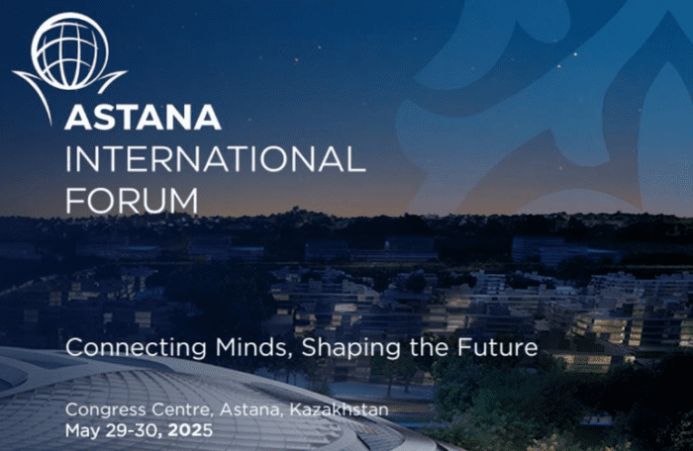Astana International Forum: Trade as a lever of strategic influence
13.05.2025 | 21:45 |The Astana International Forum (AIF) will take place on May 29-30, 2025, in the capital of Kazakhstan. This is the largest business event in the region, bringing together global leaders, experts, investors, and business representatives. The Forum's program reflects key contemporary challenges and includes a plenary session and 25 discussion platforms. The participation of approximately 600 international guests from around the world is expected, including leading politicians, heads of international organizations, corporations, investors, and representatives of the scientific community.
One of the key topics of the forum will be the transformation of global trade against the backdrop of increasing geopolitical tension. World events demonstrate that trade policy today extends beyond economics and is becoming a crucial lever of strategic influence. Ahead of AIF 2025, in an interview with a BaigeNews.kz correspondent, Nurlan Kulbatyrov, Deputy Director General of QazTrade JSC, noted that sanctions, tariffs, export controls, and investment restrictions are no longer merely instruments of market regulation but mechanisms of pressure directly linked to ensuring national security.
He emphasized that against the backdrop of increasing instability, leading international organizations are recording alarming trends. The World Trade Organization expects a 0.2% decrease in global trade turnover in 2025, which is almost 3 percentage points lower than the potential level without the introduction of trade barriers. The International Trade Centre forecasts a loss of approximately $523 billion in the export potential of world trade due to the imposition of US duties and retaliatory measures.
In the face of new challenges, Kazakhstan is not an observer but a full-fledged player in the global trade process. According to the Deputy Head of QazTrade, in 2024, the republic's foreign trade turnover amounted to $141.4 billion, encompassing ties with 194 countries worldwide. Key partners for Kazakhstan remain the European Union, China, and Russia, which account for about 75% of the total trade turnover. At the same time, Kazakhstan is increasing its focus on regional integration, expanding trade volumes within Central Asia and developing economic ties with the countries of the Middle East. According to the expert, this course aligns with a multi-vector strategy that allows for the minimization of geopolitical risks and the maintenance of flexibility.
A separate block of discussions at the Astana International Forum will be the issue of global resource diplomacy. Kazakhstan possesses a rich base of critical materials – lithium, nickel, rare earth metals – which are becoming key elements of the "green" economy. According to Kulbatyrov, by 2040, demand for lithium may increase 16-fold, for nickel 9.5-fold, and for rare earth metals 5.4-fold. This opens up prospects for Kazakhstan not only as a supplier of raw materials but also as an important participant in global value chains, including the processing and technological application of metals. The country is already working on creating the appropriate infrastructure: expanding geological exploration, attracting investment, and introducing digital technologies in the mining industry. Photo: qazaqgreen.com











